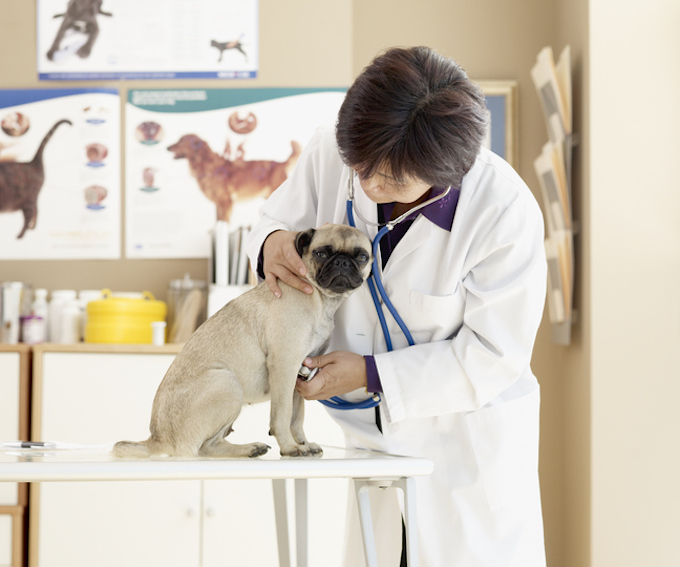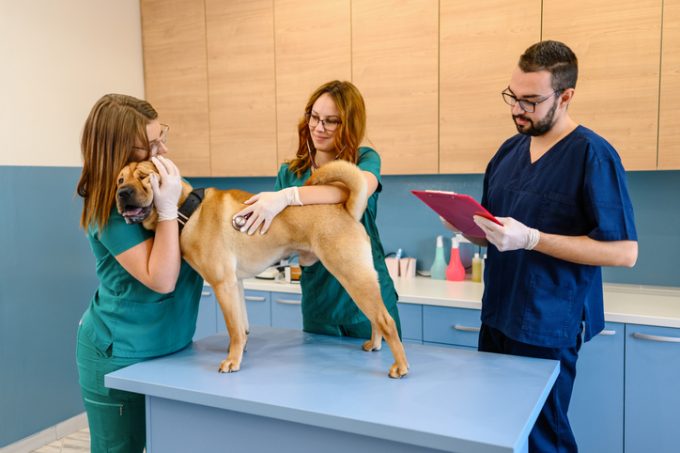Hiatal hernia in dogs happens when part of the stomach is pushed through to the diaphragm. The condition is often inherited.
Generally, all dogs can suffer from the condition. Although certain breeds including French Bulldogs, English Bulldogs, and Pugs suffer from it the most.
Thankfully, the condition is considered to be a rare one.
If you see the signs of hiatal hernia in your dog, then get to a veterinarian for a proper diagnosis and treatment.
Here’s what you should know about the symptoms, causes, and treatments for the condition.
Symptoms of Hiatal Hernia in Dogs
The condition produces a range of symptoms. For instance, some of the most common symptoms include:
- Losing weight
- Coughing
- Salivating
- Vomiting
- Shortness of breath
- Anorexia
Causes of Hiatal Hernia in Dogs

The cause of the condition is often due to a birth defect. Although a trauma can also cause the condition.
Generally, the following breeds are most likely to inherit the condition:
- Shar-Pei
- Chow
- French Bulldog
- English Bulldog
- Pug
Treatments for Hiatal Hernia in Dogs
Firstly, your vet will ask about your dog’s symptoms. Secondly, your vet will ask about your dog’s full medical history. This will include breed-specific problems.
Generally, X-rays are used to confirm the condition. Additionally, an esophagoscopy exam can be used.
Treatment often involves surgery. This is to close the opening that’s causing the hernia.
Additionally, antibiotics can be used. As always, if your vet prescribes your dog any medicine, make sure to stick to the correct dose and frequency instructions. Also, complete the full course of medicine.
Sometimes, diet changes can also help. Feeding your dog a low-fat diet can be beneficial. As can serving smaller meal portions throughout the day.
Finally, you can read more about dogs and hernias in general here.
Have you ever cared for a dog who suffered from this condition? How did your vet help your dog recover? Let us know in the comments section below.









